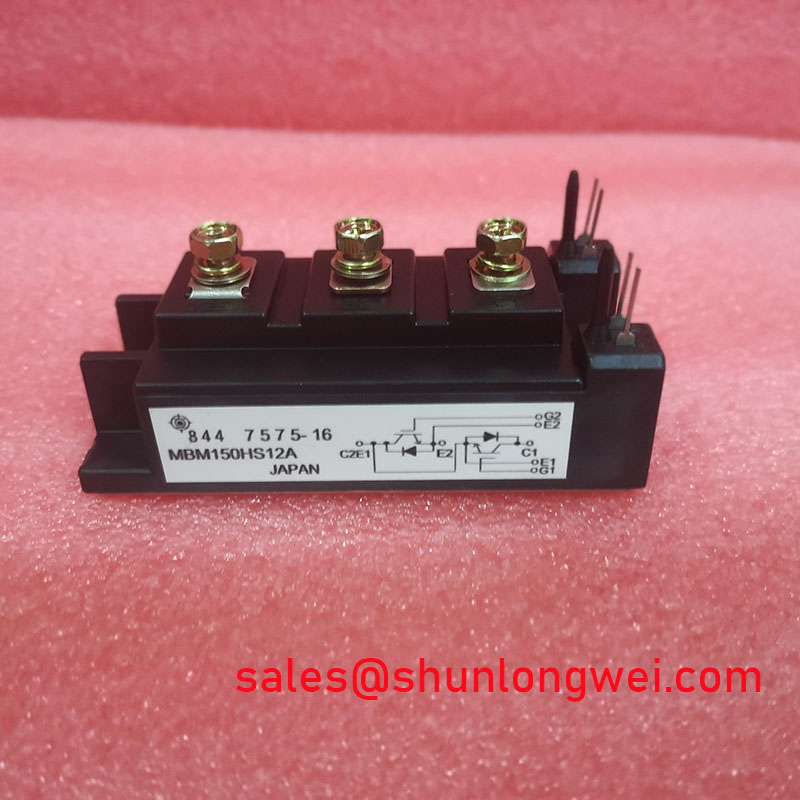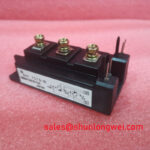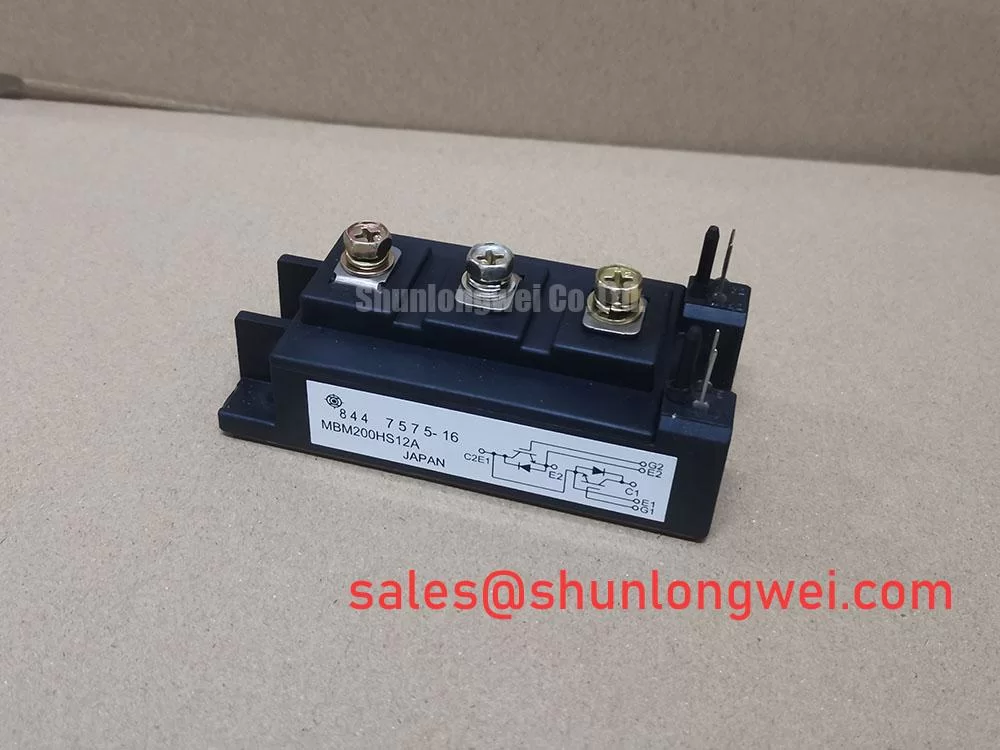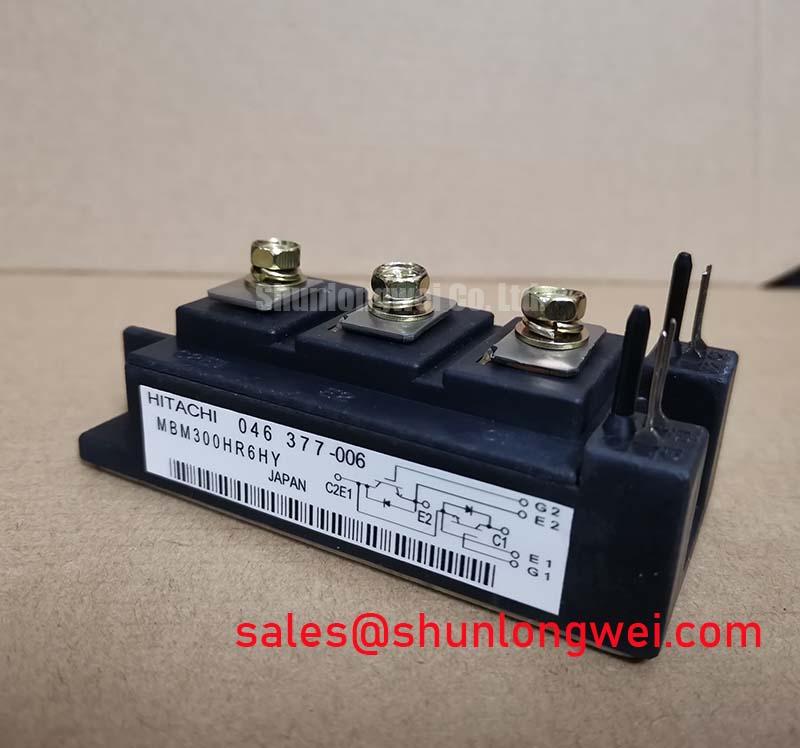Content last revised on February 2, 2026
MBM150HS12A IGBT Module: Engineering Analysis for High-Frequency Power Systems
Product Overview
Optimized for High-Frequency Switching and Thermal Efficiency
The MBM150HS12A is a high-speed N-channel IGBT module delivering a robust 1200V collector-emitter voltage and a 150A continuous collector current, engineered for demanding power conversion systems. It combines low conduction and switching losses to maximize efficiency and power density in high-frequency applications. Key specifications include: 1200V | 150A | VCE(sat) of 2.7V (max). The design offers significant benefits, including reduced thermal management requirements and improved system reliability. This module directly addresses the challenge of balancing performance and efficiency in compact inverter and power supply designs. For applications requiring higher current capacity within a similar voltage class, system designers may also evaluate the 2MBI200NB-120.
Key Parameter Overview
Highlighting Critical Specifications for Performance Modeling
The technical specifications of the MBM150HS12A are tailored for applications where switching performance is paramount. The low saturation voltage and fast switching characteristics are central to its value proposition. Below is a summary of the key parameters that directly influence system efficiency and thermal design.
| Parameter | Symbol | Test Condition | Value |
|---|---|---|---|
| Collector-Emitter Voltage | Vces | Tj = 25°C | 1200 V |
| Continuous Collector Current | Ic | Tc = 80°C | 150 A |
| Collector-Emitter Saturation Voltage | VCE(sat) (max) | Ic = 150A, Vge = 15V, Tj = 125°C | 2.7 V |
| Turn-On Switching Energy | Eon | Ic = 150A, Vcc = 600V, Tj = 125°C | 16 mJ (typ) |
| Turn-Off Switching Energy | Eoff | Ic = 150A, Vcc = 600V, Tj = 125°C | 20 mJ (typ) |
| Thermal Resistance, Junction to Case | Rth(j-c) | Per IGBT | 0.16 °C/W |
Application Scenarios & Value
System-Level Benefits in High-Frequency Motor Drives and SMPS
The MBM150HS12A is engineered for power conversion systems where operational efficiency and compact design are critical. Its primary value is realized in applications that leverage high switching frequencies to reduce the size of magnetic components like inductors and transformers. For an engineer designing a Variable Frequency Drive (VFD), the fast turn-on and turn-off characteristics (Eon/Eoff) of this module are crucial. What is the primary benefit of its low switching energy? Reduced power loss at higher PWM frequencies, which allows for smaller heatsinks and a more compact overall drive. This translates directly into lower material costs and a smaller system footprint, a key competitive advantage in crowded industrial control cabinets.
This module is an excellent fit for:
- High-frequency industrial motor drives
- Switch-Mode Power Supplies (SMPS)
- Uninterruptible Power Supplies (UPS)
- Welding power sources
Its robust 1200V rating provides a substantial safety margin for applications operating on 400V or 480V AC lines. For lower-power systems or those where a higher level of integration is preferred, an Intelligent Power Module (IPM) such as the 6MBP25VAA120-50 can offer a simplified design path by including gate drive and protection circuits.
Technical Deep Dive
Analyzing the Balance Between VCE(sat) and Switching Loss
A core design trade-off in any IGBT is the inverse relationship between conduction loss (driven by VCE(sat)) and switching loss (driven by Eon/Eoff). The MBM150HS12A is optimized to find an effective balance for high-frequency operation. Its VCE(sat) of 2.7V at a junction temperature of 125°C represents a controlled compromise to achieve faster switching speeds. Think of it like the gear ratio in a car: a lower gear provides high torque (analogous to low VCE(sat) for low-speed efficiency), while a higher gear allows for high speed (analogous to fast switching) at the cost of some initial torque. This module is effectively in a 'higher gear,' making it ideal for systems operating above 10 kHz where switching losses would otherwise dominate the total thermal budget. This deliberate tuning is critical for achieving high efficiency in modern IGBT-based systems.
Frequently Asked Questions (FAQ)
What is the significance of the 150A rating being specified at a case temperature (Tc) of 80°C?
This provides a more realistic current handling capability under typical industrial operating conditions compared to a rating at 25°C. It gives engineers a more practical starting point for thermal design, ensuring the module can perform reliably without immediate derating in a warm environment.
How does the Rth(j-c) of 0.16 °C/W influence heatsink selection?
A lower thermal resistance from junction to case signifies more efficient heat transfer out of the semiconductor. This value allows for the use of a smaller, more cost-effective heatsink for a given power dissipation, directly impacting the power density and bill of materials (BOM) cost of the final product.
Is this module suitable for hard-switching topologies?
Yes, its fast switching characteristics and the inclusion of a robust free-wheeling diode make it well-suited for hard-switching bridge topologies commonly found in VFDs and UPS systems. The documented Eon and Eoff values are essential for accurately calculating losses in these demanding circuits.
What gate drive voltage is recommended for optimal performance?
The datasheet specifies key parameters at a gate-emitter voltage (Vge) of 15V. Operating at this recommended voltage ensures the IGBT is fully saturated in the on-state, achieving the specified low VCE(sat) and minimizing conduction losses. For more on gate drive design, refer to our guide on robust IGBT gate drive design.
Strategic Considerations
Integrating the MBM150HS12A into a power system design is a strategic choice for engineers targeting higher efficiency and power density. The module's performance characteristics align with key industry trends, including the electrification of industrial processes and the adoption of more stringent energy efficiency standards. By enabling smaller and more efficient power converters, this IGBT serves as a key building block for next-generation systems where space, cost, and energy consumption are primary design constraints.











